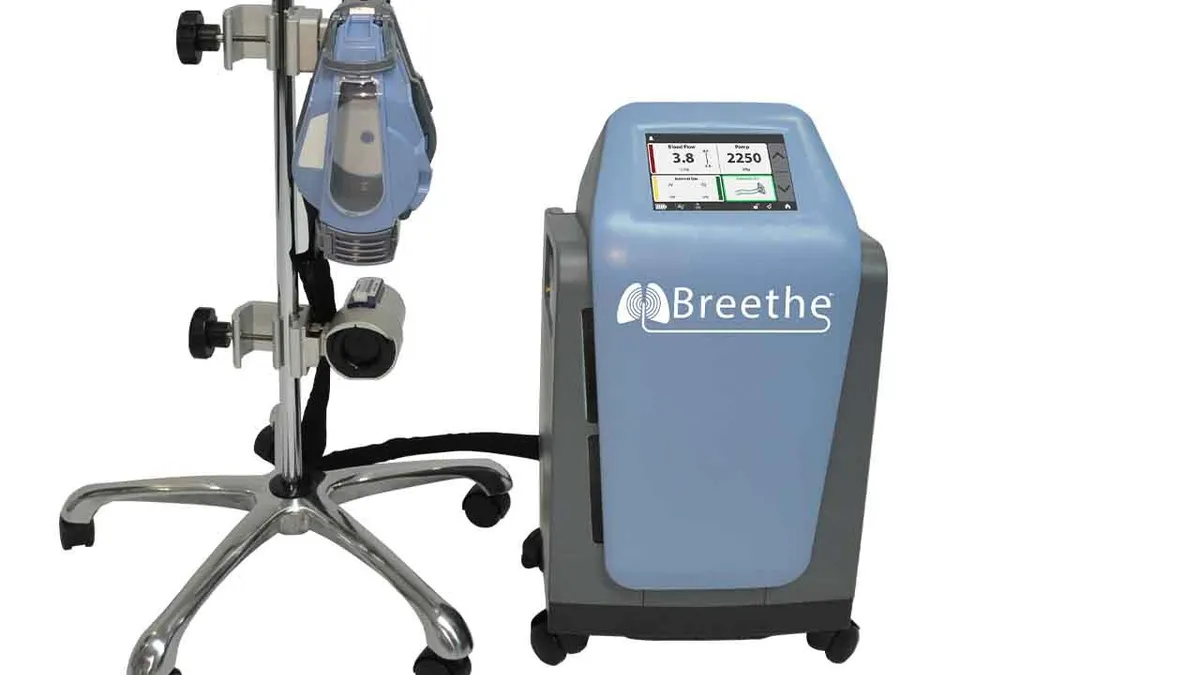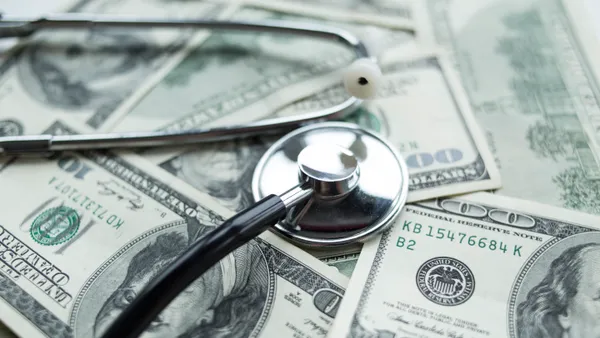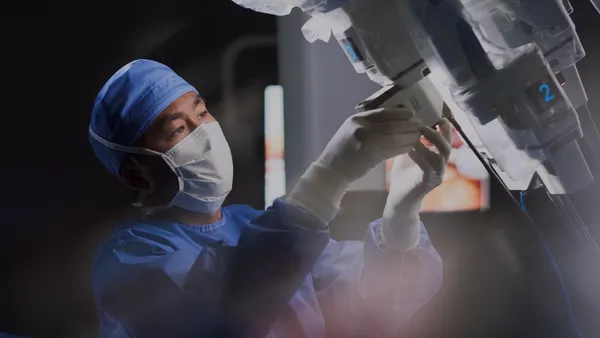Dive Brief:
- Abiomed said late Wednesday it acquired Breethe, a Baltimore-based developer of a portable extracorporeal membrane oxygenation, or ECMO, to service patients receiving its Impella heart pump who also require oxygenation support. Terms were not disclosed.
- The system can be used to support patients with cardiogenic shock or respiratory failure, which may include individuals with COVID-19. Abiomed has been interacting with Breethe for several years and it invested in the startup in mid-2019, CEO Mike Minogue said. Breethe is awaiting 510(k) clearance for its device from FDA.
- Abiomed posted earnings results Thursday for its fiscal fourth quarter, with Impella revenues of approximately $197 million falling 1% from the year prior. Abiomed attributed weakness to COVID-19's impact on procedures, which the company estimates resulted in $17 million in lost revenues, and lingering impact from a pair of studies last year that questioned Impella's benefit.
Dive Insight:
Prior to gaining Breethe's less bulky ECMO system, Abiomed said it had seen roughly 10,000 cases of cardiogenic shock patients receiving both Impella and ECMO during the last decade.
Abiomed calls those patients 'ECpella' cases. ECPella has been documented in the Journal of the American College of Cardiology and the European Journal of Heart Failure. Abiomed highlighted a study in the latter that found better rates of heart recovery with the combined Impella and ECMO approach rather than ECMO alone.
The Breethe ECMO system serves as an artificial lung of sorts, using tubes to take venous blood, remove carbon dioxide and add oxygen, and return oxygenated blood to a patient. Breethe's founder, University of Maryland cardiac surgeon Bartley Griffith, served as the principal investigator of Abiomed's RECOVER I feasibility study for the Impella 5.0 pump.
Minogue told investors Thursday Abiomed is "preparing for the worst, hoping for the best" as it awaits healthcare systems' return to allowing and encouraging heart care. Until governments greenlight ramp-ups of elective procedures, patients may continue to not seek care and delays could worsen outcomes, he added.
In the recent quarter, U.S Impella revenue declined 3% year over year, with patient use of Impella down 5% as a result of COVID-19, the company said. But for the full year, Impella sales rose 9% to nearly $807 million.
In light of the pandemic, Abiomed said it's implementing "alternate work schedules" at its manufacturing sites, cutting executive pay, freezing hiring and taking other cost-cutting measures through at least the fiscal first quarter. The company announced in late March it also had to pause its STEMI-DTU clinical trial, which is assessing its Impella CP temporary circulatory assist device.
Abiomed declined to offer financial guidance for its coming fiscal year in light of COVID-19.












